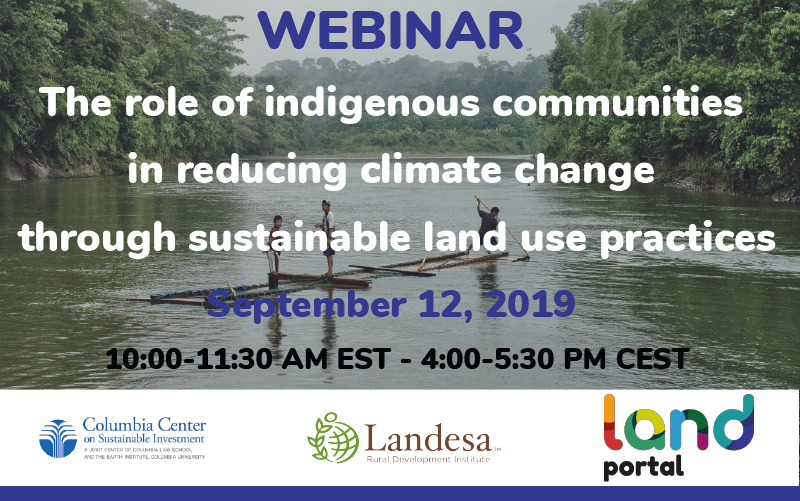The climate crisis demands urgent action, yet we live in a politically polarized and paralyzed world. As governments and other actors struggle over climate change, our environment is irreversibly changing. A United Nations report on the Global Assessment of Biodiversity and Ecosystem Services revealed that three-quarters of the earth’s land-based environment has been significantly altered by human actions. Land degradation has reduced the productivity of 23% of the global land surface, nearly $600 billion in annual global crops are at risk from pollinator loss and 100-300 million people are at increased risk of floods and hurricanes due to the loss of coastal habitats. In one glimmer of hope, the report emphasizes that in areas managed by indigenous peoples and local communities, these trends have been less severe or avoided entirely. Nonetheless, climate change threatens the survival of indigenous peoples around the world.
How can the land uses of indigenous and other communities help address the climate crisis, and what is needed to protect the ability of these communities to sustainably manage their lands and resources, and to adapt to the effects of global heating? This webinar explored questions.
According to the UN report, at least a quarter of the earth’s land area is owned, managed, used or occupied by indigenous people. These indigenous held areas include 35% of all formally protected areas in the world. Lands and resources managed by indigenous peoples and local communities are under increasing pressure; the imperative to protect them is heightened by the fact that indigenous peoples are vital to, and help enhance the resilience of, the many ecosystems located within their lands and territories. Recent research has also confirmed that tenure-secure indigenous lands often have lower deforestation rates than other areas.
In addition to limiting their contributions to the climate crisis, indigenous peoples also have strategies for adapting to climate change’s negative impacts. They interpret and react to the impacts of climate change in creative ways, drawing on traditional knowledge and other technologies to find solutions which may help society at large to cope with impending changes. In the words of the former UN Secretary General Ban-Ki Moon, “Indigenous People have centuries of old wisdom to live harmoniously with nature. We have to learn those wisdoms from them. I urge you to ensure that Indigenous Peoples, their rights and contributions will remain central as we address these challenges.”
Panelists addressed the following questions:
-
How do indigenous peoples’ traditional land use practices help to combat climate change?
-
What threats to these practices exist, and what strategies can indigenous and local communities and their allies pursue to protect them?
-
How are indigenous and local communities adapting to climate change? Are there any strategies and land governance practices that we can learn from and seek to replicate?
-
What underlying land governance practices increase the ability of indigenous communities to face climate change?
Moderator: Sam Szoke-Burke, Legal Researcher, Columbia Center on Sustainable Investment
Panelists:
-
Dr. Kanyinke Sena, Director, Indigenous Peoples of Africa Coordinating Committee
-
Antonella Cordone, Senior Technical Specialist, Nutrition and Social Inclusion, Environment, Climate, Gender and Social Inclusion Division, International Fund for Agricultural Development (IFAD)
-
Janene Yazzie, Co- Founder and CEO, Sixth World Solutions



